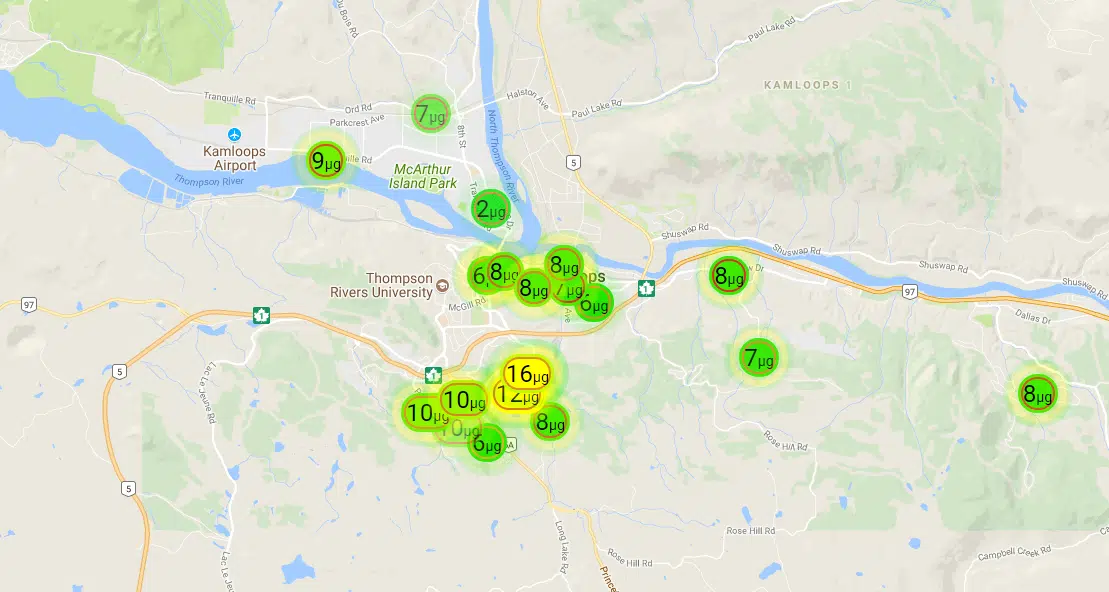
Tunkwa Lake fire already elevating particulate readings in Kamloops area
KAMLOOPS — The forest fire burning near Tunkwa Lake is already having a negative impact on the air quality in Kamloops.
TRU Environmental Studies Professor Michael Mehta oversees two networks of air quality monitors in the city, and says particulate readings have steadily increased over the past 24 hours.
“We’ve noticed, in the last 24 hours in particular, that there’s been a slow but significant increase in particulate exposures in the Kamloops area, probably because of the local forest fire situation.”


